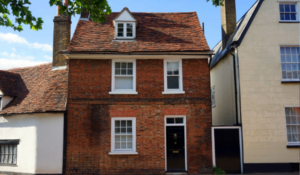 What is inheritance tax?
What is inheritance tax?
Inheritance tax is levied on the value of the estate of a person when they die. The value of the estate will include property, investments, cash, businesses (owned or part-owned), vehicles and the proceeds of any life insurance policies not held in trust. Any debts outstanding at the time of death will reduce the value of the estate.
Inheritance tax is payable on the total value of the estate over the inheritance tax threshold of £325,000 (tax year 2024/25), known as the nil rate IHT band. This nil rate IHT band is transferable to a spouse or civil partner on death resulting in a total nil rate band of £650,000 for married couples or those in civil partnerships. Any amount over the total nil rate band may be liable to 40% tax. For more help on inheritance tax, check out our free inheritance tax calculator.
What is the residence nil rate band?
The residence nil rate band (RNRB) was first introduced in April 2017 and is an additional inheritance tax allowance of £175,000 (2024/25) available on any property passed to an individual's children or grandchildren (including adopted, foster or stepchildren) on death. The rules also allow the family home to pass into the joint names of the deceased's child and their spouse.
The residence nil rate band of £175,000 is in addition to, and applied before, the individual nil rate inheritance tax band of £325,000 (2024/25) mentioned above. The RNRB is set to remain at £175,000 until at least 2030 after Chancellor of the Exchequer Rachel Reeves announced the freeze on inheritance tax thresholds would be extended by 2 years during Labour's Autumn Budget.
If your total estate is worth more than £2m, the RNRB will taper off by £1 for every £2 above this threshold.
The residence nil rate band of £175,000, when added to the standard nil rate band of £325,000 means that a total inheritance tax-free allowance of £500,000 can be passed to a spouse or civil partner on death free of inheritance tax. This means that it is possible for a married couple or those in a civil partnership to pass on £1million of assets (including their home) to their children or grandchildren.
Free Inheritance Tax Check
Our partner Unbiased will help you get a free IHT review from a local tax expert
- Find out your exact Inheritance Tax liability
- The steps you can take to reduce potential IHT
- No obligation on your part

Can I transfer my residence nil rate band?
The RNRB can be transferred to a spouse or civil partner on death similar to the transfer of the standard nil rate band. Any unused RNRB from the estate of the first death can be claimed on the second death irrespective of when the first death occurred or whether the deceased partner owned residential property at the time of their death.
On the death of the surviving spouse or civil partner the property left to their direct descendants does not have to be the same home that they lived in with their partner to qualify for RNRB or to transfer it to a spouse or civil partner.
Which properties qualify for the residence nil rate band?
The RNRB applies to only one property and this must form part of your estate and not be held in trust. You do not need to live in the property at the time of death but must have lived in it at some stage in your life. The property does not have to be in the UK and your 'domicile' at the time of death will decide whether your heirs pay UK inheritance tax. If you own more than one home the executor of your estate can nominate which one is to be used for RNRB purposes.
Will downsizing affect the residence nil rate band?
If an individual downsizes to a less valuable home before they die, either to raise funds or move into a care home, their estate could still qualify for RNRB on their death.
To qualify the following conditions must apply:
- they downsized on or after 8th July 2015
- their previous home would have qualified for RNRB if they had owned it until they died
- their children or grandchildren inherit some of the estate
Only one downsizing move can be taken into account for the additional RNRB and if more than one event has occurred the executor and beneficiaries must decide which one to choose.
Will a property held in trust affect the residence nil rate band?
If on death a property passes into a discretionary trust for the benefit of the children or grandchildren the RNRB may be lost. If the trust gives a child or grandchild an absolute interest or interest in possession the RNRB can still be claimed.





